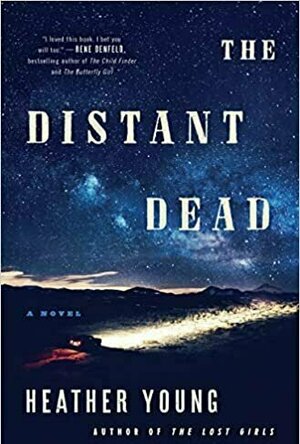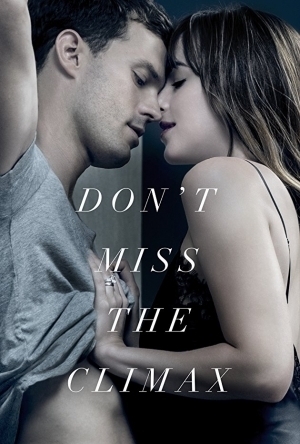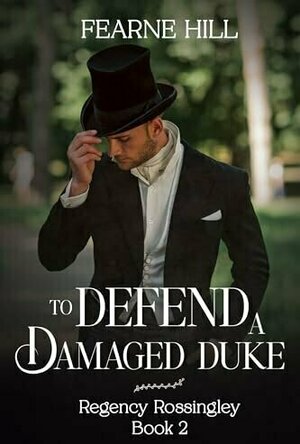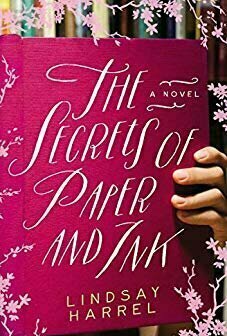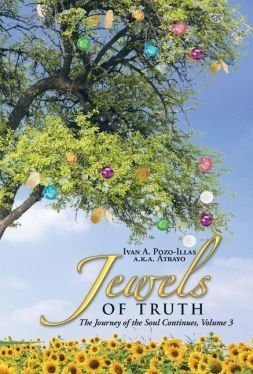Search
Kristy H (1252 KP) rated The Distant Dead in Books
Mar 4, 2021
A dark and well-written tale of sadness and forgiveness
Adam Merkel left his job as a professor in Reno to come to Lovelock, a small town, to teach math at their middle school. He was mostly mocked by his students, except for one, Sal Prentiss. After the death of his mother, Sal lives outside of town with his two uncles. Mostly friendless, he bonds with Mr. Merkel over math, chess, and more. So when Sal finds Mr. Merkel's body on his way to schoool--burned so that it's nearly unrecognizable--it turns his small world upside down. It upsets Nora Wheaton as well. A colleague of Adam's at the school, she thought she recognized a kindred spirit in him. Both seemed trapped in Lovelock: Nora had to return to care for her father. After Adam's death, Nora starts looking into his past to see what led to his horrible undoing. But so much of what she finds keeps leading back to the boy who befriended him--and found his body. As she tries to befriend the wary Sal, it opens up old wounds of her own.
I really loved Heather Young's book The Lost Girls, and The Distant Dead didn't disappoint either. She excels at creating excellent atmospheric novels with well-drawn characters. The Distant Dead perfectly captures small town life: how nearly everyone knows almost everything about everyone, but rarely interferes. How a small town can feel so stifling and claustrophobic. How the secrets and lies pile up until a man finds himself burned to death.
Young also covers the timely topics of drugs and addiction, which run as a thread across the book. Opiates don't seem like a tired trope here, though, but something that is eating up the town and ruining people's lives. It's no secret that I'm a sucker for a book with a good kid character, and I pretty much fell for Sal immediately. He's a great kid: real, vulnerable yet tough, and smart. He was an excellent narrator, with his portions telling what led up to Adam's death and Nora and Jake (a local EMT/firefighter) telling us what happened after. The book is surprisingly tense, with Young's beautifully written words jumping off every page. She's such a lyrical writer, weaving an amazing tale of sadness and redemption.
This isn't a fast read or a page-turning thriller. But it's a well-written book, with characters you won't soon forget. There's a lovely, albeit sad and dark, story here. Definitely worth a read. 4+ stars.
I really loved Heather Young's book The Lost Girls, and The Distant Dead didn't disappoint either. She excels at creating excellent atmospheric novels with well-drawn characters. The Distant Dead perfectly captures small town life: how nearly everyone knows almost everything about everyone, but rarely interferes. How a small town can feel so stifling and claustrophobic. How the secrets and lies pile up until a man finds himself burned to death.
Young also covers the timely topics of drugs and addiction, which run as a thread across the book. Opiates don't seem like a tired trope here, though, but something that is eating up the town and ruining people's lives. It's no secret that I'm a sucker for a book with a good kid character, and I pretty much fell for Sal immediately. He's a great kid: real, vulnerable yet tough, and smart. He was an excellent narrator, with his portions telling what led up to Adam's death and Nora and Jake (a local EMT/firefighter) telling us what happened after. The book is surprisingly tense, with Young's beautifully written words jumping off every page. She's such a lyrical writer, weaving an amazing tale of sadness and redemption.
This isn't a fast read or a page-turning thriller. But it's a well-written book, with characters you won't soon forget. There's a lovely, albeit sad and dark, story here. Definitely worth a read. 4+ stars.

Abide - Christian Meditation
Health & Fitness and Medical
App
Abide is the #1 Christian meditation app to bring more peace and less stress into your daily life....
Gareth von Kallenbach (980 KP) rated Fifty Shades Freed (2018) in Movies
Jun 19, 2019
The third and final entry in the “Fifty Shades” series has arrived with the release of “fifty Shades Freed”. The story opens with the wedding of Anastasia (Dakota Johnson), and Christian (Jamie Dornan), and follows their honeymoon in the lavish locales of France.
There getaway is cut short by an act of sabotage at Christian’s company and it soon becomes clear that a person from their past has taken things to a dangerous level which requires Christian to implement security measures for Anastasia and their extended family.
In between the intrigue presented by the threat, we also have numerous scenes of nudity and eroticism as Christian is not going to give up his dominating needs anytime soon.
Combine this with a new revelation that threatens to disrupt the crafted and controlled world he has created for himself and Anastasia; the tensions rise between them making a dangerous and stress-filled situation even more complicated.
While the film does have a better plot and is more engaging than the previous films in the series it is hampered by many of the same issues that hindered the series. The two leads have zero chemistry with one another and their supposedly highly erotic scenes are so routine and by the numbers they lack any form of excitement or real titillation. The film also has this message that behavior that would be considered highly unacceptable in others seems to get a pass for Christian as he is a handsome billionaire. He is a very selfish and controlling individual who demands obedience. While Anastasia does have a strong enough character to stand up to him, she tolerates behavior that would be considered unacceptable by many and seems very quick to give him a pass when lavish gifts and trips are bestowed upon her. I wonder how romantic and acceptable his behavior would be if he was a struggling musician who did not have the financial resources to create fantasies and buy his apologies. I know the film is supposed to be romantic fantasy but this really annoys me as he exhibits much of the behavior that is considered unacceptable and to be avoided at all costs, yet it is all wrapped up in a sweet bow of forgiveness.
That aside the series does seem to be losing steam as the last film earned less than the original film and “Fifty Shades Freed” is tracking to open well below the last film as well. Fans of the series will likely enjoy it as a satisfying finale, but I really expected more from the final moments of the series as after following the characters, the ending seemed very anti-climactic.
http://sknr.net/2018/02/08/fifty-shades-freed/
There getaway is cut short by an act of sabotage at Christian’s company and it soon becomes clear that a person from their past has taken things to a dangerous level which requires Christian to implement security measures for Anastasia and their extended family.
In between the intrigue presented by the threat, we also have numerous scenes of nudity and eroticism as Christian is not going to give up his dominating needs anytime soon.
Combine this with a new revelation that threatens to disrupt the crafted and controlled world he has created for himself and Anastasia; the tensions rise between them making a dangerous and stress-filled situation even more complicated.
While the film does have a better plot and is more engaging than the previous films in the series it is hampered by many of the same issues that hindered the series. The two leads have zero chemistry with one another and their supposedly highly erotic scenes are so routine and by the numbers they lack any form of excitement or real titillation. The film also has this message that behavior that would be considered highly unacceptable in others seems to get a pass for Christian as he is a handsome billionaire. He is a very selfish and controlling individual who demands obedience. While Anastasia does have a strong enough character to stand up to him, she tolerates behavior that would be considered unacceptable by many and seems very quick to give him a pass when lavish gifts and trips are bestowed upon her. I wonder how romantic and acceptable his behavior would be if he was a struggling musician who did not have the financial resources to create fantasies and buy his apologies. I know the film is supposed to be romantic fantasy but this really annoys me as he exhibits much of the behavior that is considered unacceptable and to be avoided at all costs, yet it is all wrapped up in a sweet bow of forgiveness.
That aside the series does seem to be losing steam as the last film earned less than the original film and “Fifty Shades Freed” is tracking to open well below the last film as well. Fans of the series will likely enjoy it as a satisfying finale, but I really expected more from the final moments of the series as after following the characters, the ending seemed very anti-climactic.
http://sknr.net/2018/02/08/fifty-shades-freed/
Debbiereadsbook (1664 KP) rated To Defend a Damaged Duke (Regency Rossingley #2) in Books
Jun 22, 2025
Loved this second instalment!!
Independent Reviewer for GRR, I was gifted my copy of this book.
This is book 2 in the Regency Rossingley series. While I do think it came be read as a stand alone read, I think it would benefit to read book 1, To Tempt a Troubled Earl. Since Lando and Kit play a huge part here, it will give you a better picture of their relationship, and that of Kit and Tommy. Not strictly necessary, just my persosnal opinion.
Ten years ago, Benedict did something he never forgave himself for. Now, Tommy has appeared in his life and Benedict wants nothing more than to beg Tommy's forgiveness. But first, they must uncover a blackmailer, and deal with someone messing with Benedict's horses.
I refer to my review for the first book. I said "I loved the way the duke was brought down. I wasn't fully in on the plan, as to how it was going to work, but that was just my brain not really putting it altogether!" But what I think NOW is that it is just the author's writing. She likes to keep things a bit vague, and secret, and keeps you on your toes. And I really LOVED that I can come to that revelation. Benedict has a plan to deal with the horse issue, and he doesn't tell anyone. I had a thought about that, then dismissed it, but he does what I thought he would do!!
I loved Tommy and Benedict. I loved that they still loved each other, even after what happened at the molly house. After what Tommy went through, his Lordling still pushed all his buttons and then some. Even if his feelings were borderline hate for a long time.
And what I loved the most?? That I kinda thought Tommy and Benedict had 'gone all the way' for want of a better expression in their dealings as teenagers. And it turns out, that they had not. And I loved when Benedict reveals to Tommy what he does. Made me all emotional, but I'm not saying what he reveals for spoilers!
Loved how it all went down with the blackmailing/ horse things. Those ladies of the Ton are not to be messed with and they pulled a blinder of a plan off! Beatrice and Mrs de Villiers?? Loved them!
I look forward to reading book 3, especially after that snippet at the back!
Actually, what I loved the most?? That I wrote 4 stars at the top pf the page for this and it's reviewed itself into a . . .
5 full and shiny star read!
*same worded review will elsewhere
This is book 2 in the Regency Rossingley series. While I do think it came be read as a stand alone read, I think it would benefit to read book 1, To Tempt a Troubled Earl. Since Lando and Kit play a huge part here, it will give you a better picture of their relationship, and that of Kit and Tommy. Not strictly necessary, just my persosnal opinion.
Ten years ago, Benedict did something he never forgave himself for. Now, Tommy has appeared in his life and Benedict wants nothing more than to beg Tommy's forgiveness. But first, they must uncover a blackmailer, and deal with someone messing with Benedict's horses.
I refer to my review for the first book. I said "I loved the way the duke was brought down. I wasn't fully in on the plan, as to how it was going to work, but that was just my brain not really putting it altogether!" But what I think NOW is that it is just the author's writing. She likes to keep things a bit vague, and secret, and keeps you on your toes. And I really LOVED that I can come to that revelation. Benedict has a plan to deal with the horse issue, and he doesn't tell anyone. I had a thought about that, then dismissed it, but he does what I thought he would do!!
I loved Tommy and Benedict. I loved that they still loved each other, even after what happened at the molly house. After what Tommy went through, his Lordling still pushed all his buttons and then some. Even if his feelings were borderline hate for a long time.
And what I loved the most?? That I kinda thought Tommy and Benedict had 'gone all the way' for want of a better expression in their dealings as teenagers. And it turns out, that they had not. And I loved when Benedict reveals to Tommy what he does. Made me all emotional, but I'm not saying what he reveals for spoilers!
Loved how it all went down with the blackmailing/ horse things. Those ladies of the Ton are not to be messed with and they pulled a blinder of a plan off! Beatrice and Mrs de Villiers?? Loved them!
I look forward to reading book 3, especially after that snippet at the back!
Actually, what I loved the most?? That I wrote 4 stars at the top pf the page for this and it's reviewed itself into a . . .
5 full and shiny star read!
*same worded review will elsewhere
Haley Mathiot (9 KP) rated Japan Took the J.A.P. Out of Me in Books
Apr 27, 2018
Summary: Lisa and her husband Peter are newlyweds—like, they were married four days ago—and they are moving to Japan. Lisa tells the first year of her life in Japan, and how she goes from a Jewish American Princess (JAP) with fancy cars and money and really good food to a housewife and a teacher who cooks and cleans. Lisa tells a heartwarming story of the first year of a beautiful marriage and hilarious adventures in Japan.
Thoughts: This book was really cute. I really liked it a lot. she used the f-bomb quite a lot, but i was able to overlook that and enjoy the story. Lisa is the kind of girl who at first seems to be the epitome of a princess—perfect body, favorite past time is shopping, cries when she breaks a nail. she seemed a bit shallow at first. but as the story went on and i got to know her, and see how see saw things and come to love the people she loved, i realized what kind of sweet girl she was.
One of my favorite parts of the story was when Lisa was so overwhelmed with teaching English, and her husband was being a typical guy and gave her a really pathetic gift for her 30th birthday. she got really upset and went to a bar with one of her Japanese friends, and they stayed there until about 3:00 am. she got home and Peter freaked out about her, and she just told him that she didn’t want to hear it right now. they didn’t talk for three days. she describes the tension between them, and the forgiveness after it, and you can see their marriage healed and continue to get stronger.
Characters: my favorite character was Peter. he was such a sweet guy willing to do anything for his wife whom he truly loved. It was a very good picture of marriage, too. both Lisa and Peter made sacrifices for each other, ranted about work and stupid things, sat on the balcony and had a beer, and once in a while complained to each other.
Plot: As this book was a memoir, I can’t really critique the plot, but i will say that I liked the way the book was organized—instead of chapters, there were six sections that divided up the book: Laundry, Cooking, Shopping, Cleaning, Transportation, and Intermission.
Recommendation: I sat down and read the whole second half of this book in one sitting. it was a light easy fun read, and a laugh to the last page. (my sister will testify. she was trying to write her book and I'd laugh and she’d yell “Haley be quiet!”) I recommend this book to ages 16+ (only because of the use of language and occasional sex.) and to anyone who needs a good laugh.
Thoughts: This book was really cute. I really liked it a lot. she used the f-bomb quite a lot, but i was able to overlook that and enjoy the story. Lisa is the kind of girl who at first seems to be the epitome of a princess—perfect body, favorite past time is shopping, cries when she breaks a nail. she seemed a bit shallow at first. but as the story went on and i got to know her, and see how see saw things and come to love the people she loved, i realized what kind of sweet girl she was.
One of my favorite parts of the story was when Lisa was so overwhelmed with teaching English, and her husband was being a typical guy and gave her a really pathetic gift for her 30th birthday. she got really upset and went to a bar with one of her Japanese friends, and they stayed there until about 3:00 am. she got home and Peter freaked out about her, and she just told him that she didn’t want to hear it right now. they didn’t talk for three days. she describes the tension between them, and the forgiveness after it, and you can see their marriage healed and continue to get stronger.
Characters: my favorite character was Peter. he was such a sweet guy willing to do anything for his wife whom he truly loved. It was a very good picture of marriage, too. both Lisa and Peter made sacrifices for each other, ranted about work and stupid things, sat on the balcony and had a beer, and once in a while complained to each other.
Plot: As this book was a memoir, I can’t really critique the plot, but i will say that I liked the way the book was organized—instead of chapters, there were six sections that divided up the book: Laundry, Cooking, Shopping, Cleaning, Transportation, and Intermission.
Recommendation: I sat down and read the whole second half of this book in one sitting. it was a light easy fun read, and a laugh to the last page. (my sister will testify. she was trying to write her book and I'd laugh and she’d yell “Haley be quiet!”) I recommend this book to ages 16+ (only because of the use of language and occasional sex.) and to anyone who needs a good laugh.
Louise (64 KP) rated Paper Butterflies in Books
Jul 2, 2018
I wasn’t expecting to enjoy this book as much as I did! I have never read anything by Lisa Heathfield before but I will definitely seeking out her other book ‘ Seed’. This story was harrowing and definitely difficult to read at times but addictive and I managed to read this in one sitting. This is one of those books that you can’t put down and continue to read till the early hours of the morning.
Paper Butterflies follows June, June is 11 years old and living with her father, step mother and step sister. To the neighbours they are just another normal family but behind closed doors it’s a different matter entirely. June’s stepmother is abusive, mentally and physically and even encourages her daughter to do the same. June tries to speak out to her father, but he thinks she is just having trouble settling into life after her mother’s death and adjusting to the new family members. June meets a boy in the local woods whilst riding her bike, Blister is his name and he is charming,non-judgemental and a perfect best friend. With Blister on her side will she be able to spread her wings and fly? will she finally speak out?
Paper butterflies is told from an 11-year-old, increasing to a teenagers POV of the abuse she went through and trying to accept the life she was dealt, and also has alternating chapters from the present day. June is of mixed race and finds herself in an all white family after the death of her mother and feels that she doesn’t belong not only because of her colour but because of her evil step – mother.
June was such a likeable character, the way she was reliving the scenes of abuse was harrowing and I just wanted to comfort her and tell her it would be alright and encourage her to speak out. I wanted her to tell someone, anyone, for someone to pull her out of her miserable existence. The abuse that June is subjected to is shocking and Lisa Heathfield does not hold back, even when it becomes uncomfortable to read.
Blister is the boy June meets in the woods,I loved his character, he is sweet,caring and has a knack of making things out of paper. He hides out in some desolate caravans and there the two of them forge a friendship. Blisters life is so different from June’s and when she is around them she feels free to be herself.
Lisa Heathfield’s writing is so strong and powerful, it’s addictive and certainly packs a punch. This book is an emotional rollercoaster involving, child abuse,coming of age, love, friendship and forgiveness. This book left me feeling hopeful and that there are friends who will be with you through thick or thin.
I recommend this book to anyone that reads YA.
Overall I rated this 4 out of 5 stars
*I received an advanced copy of this book in exchange for an honest review*
Paper Butterflies follows June, June is 11 years old and living with her father, step mother and step sister. To the neighbours they are just another normal family but behind closed doors it’s a different matter entirely. June’s stepmother is abusive, mentally and physically and even encourages her daughter to do the same. June tries to speak out to her father, but he thinks she is just having trouble settling into life after her mother’s death and adjusting to the new family members. June meets a boy in the local woods whilst riding her bike, Blister is his name and he is charming,non-judgemental and a perfect best friend. With Blister on her side will she be able to spread her wings and fly? will she finally speak out?
Paper butterflies is told from an 11-year-old, increasing to a teenagers POV of the abuse she went through and trying to accept the life she was dealt, and also has alternating chapters from the present day. June is of mixed race and finds herself in an all white family after the death of her mother and feels that she doesn’t belong not only because of her colour but because of her evil step – mother.
June was such a likeable character, the way she was reliving the scenes of abuse was harrowing and I just wanted to comfort her and tell her it would be alright and encourage her to speak out. I wanted her to tell someone, anyone, for someone to pull her out of her miserable existence. The abuse that June is subjected to is shocking and Lisa Heathfield does not hold back, even when it becomes uncomfortable to read.
Blister is the boy June meets in the woods,I loved his character, he is sweet,caring and has a knack of making things out of paper. He hides out in some desolate caravans and there the two of them forge a friendship. Blisters life is so different from June’s and when she is around them she feels free to be herself.
Lisa Heathfield’s writing is so strong and powerful, it’s addictive and certainly packs a punch. This book is an emotional rollercoaster involving, child abuse,coming of age, love, friendship and forgiveness. This book left me feeling hopeful and that there are friends who will be with you through thick or thin.
I recommend this book to anyone that reads YA.
Overall I rated this 4 out of 5 stars
*I received an advanced copy of this book in exchange for an honest review*
MaryAnn (14 KP) rated The Secrets of Paper and Ink in Books
Nov 4, 2019
Lindsay Harrel presents a powerful story of healing, forgiveness, and finding the courage to write your own story. A year after the death of her abusive fiancé, domestic violence counselor Sophia Barrett finds returning to work too painful. She escapes to Cornwall, England—a place she’s learned to love through the words of her favorite author—and finds a place to stay with the requirement that she help out in the bookstore underneath the room she’s renting. Given her love of all things literary, it seems like the perfect place to find peace. Ginny Rose is an American living in Cornwall, sure that if she saves the bookstore she co-owns with her husband then she can save her marriage as well. Fighting to keep the first place she feels like she belongs, she brainstorms with her brother-in-law, William, and Sophia to try to keep the charming bookstore afloat. More than 150 years before, governess Emily Fairfax knew two things for certain: she wanted to be a published author, and she was in love with her childhood best friend. But he was a wealthy heir and well out of her league. Sophia discovers Emily’s journals, and she and William embark on a mission to find out more about this mysterious and determined woman, all the while getting closer to each other as they get closer to the truth. The lives of the three women intertwine as each learns the power she has over the story of her life.
My Thoughts: This was a very compelling read for me. This is not just a story about one woman finding her healing from an abusive relationship but of three women finding out who they are and finding their true love.
I love the way the author combines the three lives of these women to form a story that the reader will be unable to put down.
There is a quote in the book that really stuck out to me "All we have in life are the choices we make. We must make choices we can live with - and die with if it comes to that". This is so true, life is made up of our choices, some may be good and others may not be so good. In the end, we have to live with our choices and the consequences of them. This is what Emily's father told her once and it was good advice. Emily is my favorite of the three women. She had a desire and she saw it through, she never gave up on her writing. She held to her convictions and had a love for others. She never let defeat get her down or to stop her from doing what she wanted to do.
I really enjoyed this novel, and I believe that other readers will enjoy it as much as I did; I think each reader will take something away with them from this novel. I hope to read more from this author.
My Thoughts: This was a very compelling read for me. This is not just a story about one woman finding her healing from an abusive relationship but of three women finding out who they are and finding their true love.
I love the way the author combines the three lives of these women to form a story that the reader will be unable to put down.
There is a quote in the book that really stuck out to me "All we have in life are the choices we make. We must make choices we can live with - and die with if it comes to that". This is so true, life is made up of our choices, some may be good and others may not be so good. In the end, we have to live with our choices and the consequences of them. This is what Emily's father told her once and it was good advice. Emily is my favorite of the three women. She had a desire and she saw it through, she never gave up on her writing. She held to her convictions and had a love for others. She never let defeat get her down or to stop her from doing what she wanted to do.
I really enjoyed this novel, and I believe that other readers will enjoy it as much as I did; I think each reader will take something away with them from this novel. I hope to read more from this author.
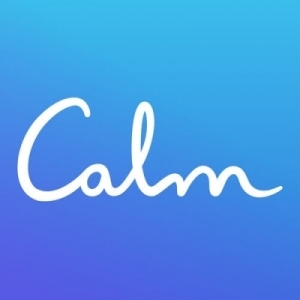
Calm: Meditation
Health & Fitness and Lifestyle
App
Calm is the #1 app for mindfulness and meditation to bring more clarity, joy and peace to your daily...
Kara Skinner (332 KP) rated Jewels of Truth: The Journey of the Soul Continues, Vol. 3 in Books
Jun 12, 2019
Genre: Non-fiction, Spiritual, Non-romance
Page Count: 258 pages
My rating: 3 out of 5 stars
Your spiritual journey of self-improvement continues in volume three of the Jewels of Truth series by Ivan A. Pozo-Illas, a.k.a. Atrayo. In this new compendium of 365 statements of spiritual wisdom, Atrayo shares daily inspirational tools to explore all of the must-haves in your life, including love, faith, forgiveness, and certainly, God(dess).
From these poignant and concise statements, rather than lengthy diatribes, you can easily and quickly find the essential kernel of truth to help you on your journey today.
No matter your religious or spiritual traditions or background, this volume is written from an all-inclusive perspective. Jewels of Truth: The Journey of the Soul Continues is the sacred and uplifting result of clairvoyant automatic writing as the genesis motivation to reach the masses. The channeled spirit teachers are all angelic in divine nature. They are nameless as a united continuum of the Holy Spirit.
Spirituality has a core need in our lives. No matter where you are on your journey, these messages of hope are shared in love.
Let me start off by saying that I am really not qualified to be reviewing this book. Ivan A. Pozo-Illas was generous enough to donate to the Borgen Project in exchange for an honest review. While I am happy to do it, I am probably not doing this book justice.
As someone with absolutely no background in philosophy or religion, this was a difficult book to get through and review.
I do know that despite the author’s claims of it being all-inclusive for all religious backgrounds, the book was more tilted to the Christian faith, with most of the proverbs talking about God, Jesus, and the Holy Spirit. There were plenty of mentions of God(dess) as well, which was the basically only indication these statements of wisdom were not strictly for Christian. While Mohammed, Buddha, and Krishna are mentioned maybe four times, and always in a list of other important religious figures from different religions (never for their specific teachings), Jesus is mentioned 22 times, usually in passages like this:
It has been written in the Biblical New Testament that “Jesus the Christ” once stated that to enter the “Kingdom of God” one must be as innocent as a child in spirit.
On top of that, these statements of wisdom, to me at least, were pretty long and wordy. It was difficult to get through. A lot of the time I did not understand what was being said, but that could just be chalked up to my own ignorance on the subject.
This is probably more useful to people more educated about spirituality than me, but it is definitely not for the everyday person, at least not most of it. There were some things that were interesting, like this quote celebrating diversity in religions.
No one religion can have a monopoly on God and/or on his favoritism. To say so is a lie and a sin to the diversity within Creation itself.
Page Count: 258 pages
My rating: 3 out of 5 stars
Your spiritual journey of self-improvement continues in volume three of the Jewels of Truth series by Ivan A. Pozo-Illas, a.k.a. Atrayo. In this new compendium of 365 statements of spiritual wisdom, Atrayo shares daily inspirational tools to explore all of the must-haves in your life, including love, faith, forgiveness, and certainly, God(dess).
From these poignant and concise statements, rather than lengthy diatribes, you can easily and quickly find the essential kernel of truth to help you on your journey today.
No matter your religious or spiritual traditions or background, this volume is written from an all-inclusive perspective. Jewels of Truth: The Journey of the Soul Continues is the sacred and uplifting result of clairvoyant automatic writing as the genesis motivation to reach the masses. The channeled spirit teachers are all angelic in divine nature. They are nameless as a united continuum of the Holy Spirit.
Spirituality has a core need in our lives. No matter where you are on your journey, these messages of hope are shared in love.
Let me start off by saying that I am really not qualified to be reviewing this book. Ivan A. Pozo-Illas was generous enough to donate to the Borgen Project in exchange for an honest review. While I am happy to do it, I am probably not doing this book justice.
As someone with absolutely no background in philosophy or religion, this was a difficult book to get through and review.
I do know that despite the author’s claims of it being all-inclusive for all religious backgrounds, the book was more tilted to the Christian faith, with most of the proverbs talking about God, Jesus, and the Holy Spirit. There were plenty of mentions of God(dess) as well, which was the basically only indication these statements of wisdom were not strictly for Christian. While Mohammed, Buddha, and Krishna are mentioned maybe four times, and always in a list of other important religious figures from different religions (never for their specific teachings), Jesus is mentioned 22 times, usually in passages like this:
It has been written in the Biblical New Testament that “Jesus the Christ” once stated that to enter the “Kingdom of God” one must be as innocent as a child in spirit.
On top of that, these statements of wisdom, to me at least, were pretty long and wordy. It was difficult to get through. A lot of the time I did not understand what was being said, but that could just be chalked up to my own ignorance on the subject.
This is probably more useful to people more educated about spirituality than me, but it is definitely not for the everyday person, at least not most of it. There were some things that were interesting, like this quote celebrating diversity in religions.
No one religion can have a monopoly on God and/or on his favoritism. To say so is a lie and a sin to the diversity within Creation itself.
